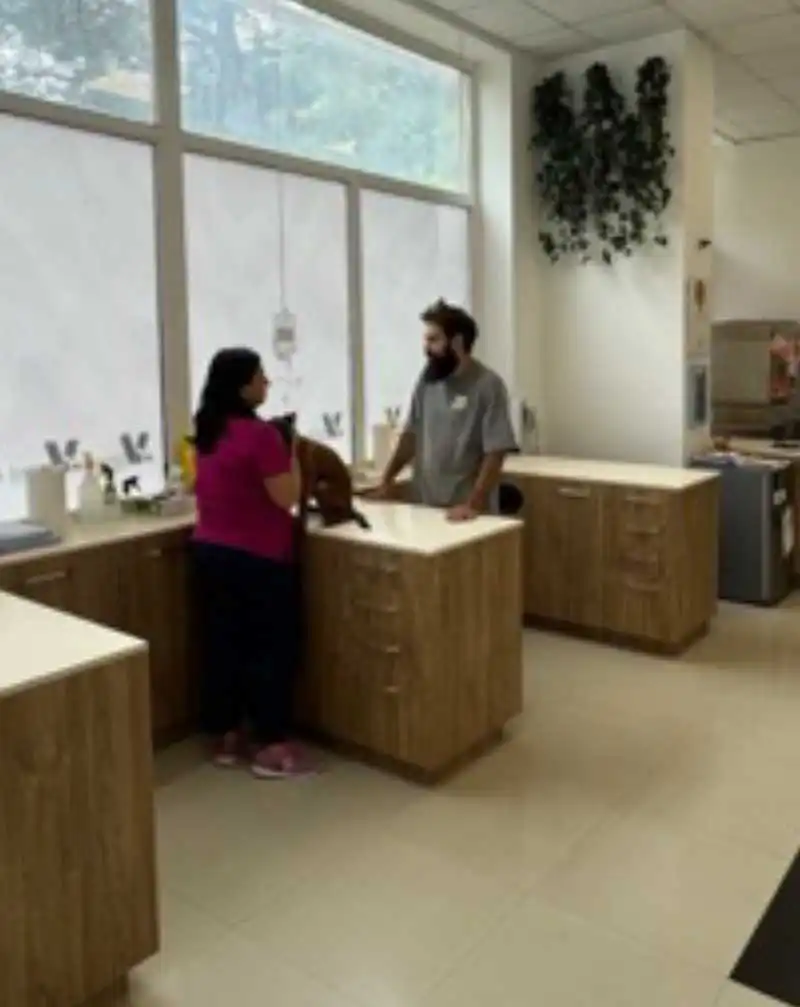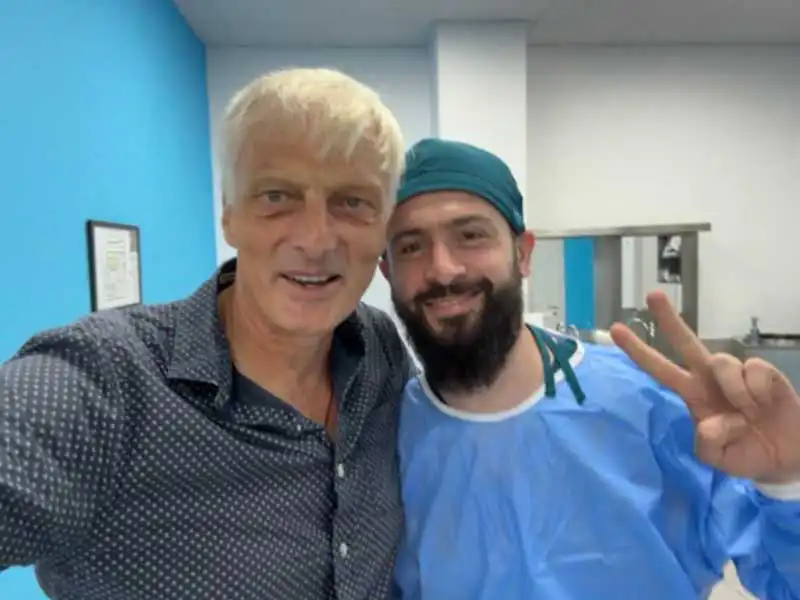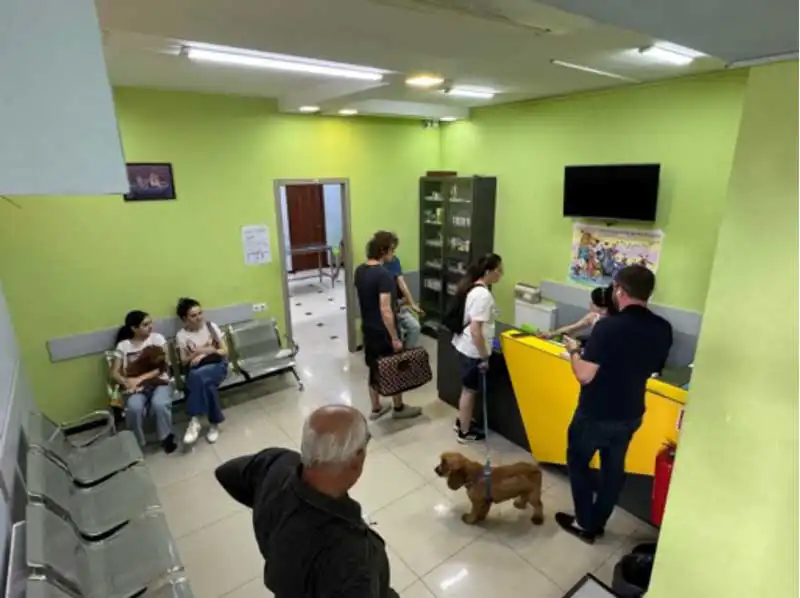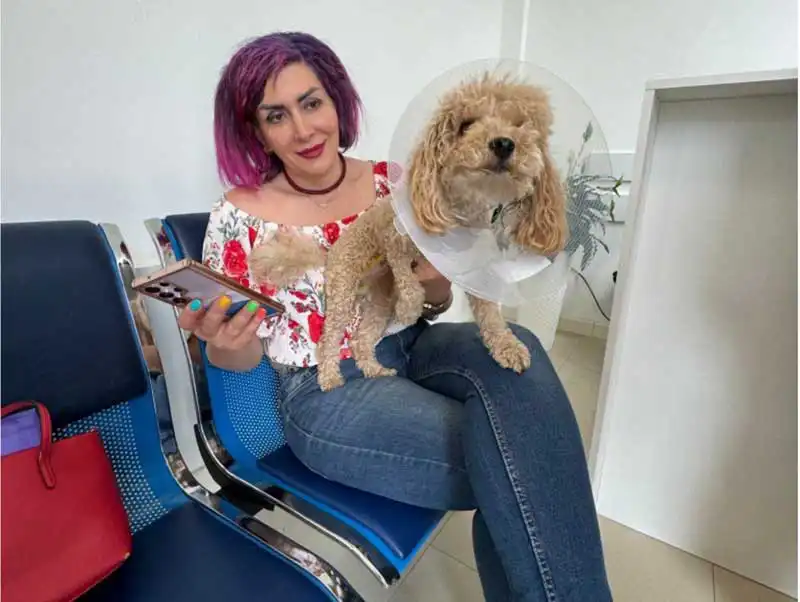27 May 2025
Wolfgang Dohne DrMedVet, MRCVS recalls a particularly tumultuous journey to the Caucasus, and sheds some light on how the local practices operate.

I was in a bad way. For a whole day and for a couple of nights, I had been struggling with abdominal pain, and none of the painkillers I had thrown at it had made much of a difference. Declaring defeat, I had managed to get a last-minute flight with a Ukrainian carrier out of Tbilisi and via Kyiv to the UK.
My monosyllabic taxi driver refused to issue me with a receipt for the cash I had given him for his reckless driving through the unlit suburbs of the Georgian capital. At least he had dropped me at the airport in time, and at that point I just didn’t have it in me anymore to pick a fight over it.
Eventually, the crowded Tupolev lifted off the tarmac and we were heading north over the Caucasus mountains towards Russia, while I was emptying the remaining contents of my stomach into the waxed paper bag I had found just in time in the back pocket of the seat in front of me.
This was eight years ago, and it had been a miserable way to finish my first visit to Georgia. And while a couple of gastric ulcers and a gallstone were telling me that I had taken on a bit too much by running my own veterinary clinic, and at the same time trying to attend a lot of vet meetings all over Europe, I knew that I had to be back to this city and to the colleagues there.
Much had happened in Georgia when I finally shook hands again with Giorgi and Dato, who had once taken me on an epic road trip across the country and along the unstable border with Azerbaijan to the north of Armenia.
The state of the roads, the speed and the insane overtaking of and by cars still gives me nightmares.
It was good not only seeing them both alive and in good health, but also to learn that Dato had finally disposed of his Mercedes-Benz, the death trap that had undergone a DIY LPG re-fit, resulting in a sizeable liquid gas canister placed right behind the rear seats (where I was sitting). Several completely burned out car wrecks alongside the road had indicated that this, in combination with a non-existent traffic etiquette, had been a very bad idea.
This time around, with the help of my local colleague and fixer, Mariam Chkhikvishvili, I was able not only to reconnect with Dato and Giorgi, but to visit also their places of work.
Giorgi was busy performing a dental procedure on a small dog when I visited him at Vetlife, a new and well-equipped clinic in the city centre.
Providing a 24-hour service for their clients and placed in the ground floor of a multi-storey building, this small hospital employs a number of veterinary specialists, able to see patients in six small consulting rooms with a minimalistic interior design, making them especially perfect for feline consults. The clinic features a CR radiology system, as well as ultrasound facilities in dedicated rooms. A large preparation area in the centre of the hospital leaves ample space to perform both dental procedures and to get patients ready for surgery in the well-equipped operating theatre.
Vetlife is a fairly new set-up, and the place wasn’t overly busy when I visited.
This was different at Dato’s place, which struck me as a pet owner’s dream and a nurse’s nightmare.

The clinic was heaving with clients, staff and patients, with no defined distinction between the public and the private areas, probably with the exception of the operating area.
Clients clearly loved this busy place and quite a few of them were staying with their pets while these were receiving their treatment. As Dato was once again busy risking his life on the unpredictable Georgian roads, I was greeted by the always positive and smiling Izi Miminoshvili and by Tamuna Kakubava, who was managing the whole place in a calm and controlled way.
As in most urban practices these days, the majority of the patients were cats and smaller-breed dogs, plus a not-inconsiderable number of large and sometimes very large guard dogs.
With no own testing and licensing organisation for veterinary medicines established in Georgia, the permission to sell and use these drugs is mainly based on previous Food and Drug Administration or European Medicines Agency accreditation. In addition to this, a lot of human medicines are being used on pets in Georgia. Vaccines are readily available, but often declined by pet owners as being too expensive or considered unnecessary, despite the fact that cases of distemper, parvovirus and even rabies are not uncommon in this part of the world.
Unsurprisingly, vector-borne diseases such as ehrlichiosis, anaplasmosis and leishmaniosis are a common presentation as well, usually due to the failure of using the prophylactic treatment options available.
The use of monoclonal antibodies for atopic or arthritic patients, as well as any online pet health services, have yet to arrive in Georgia.
Pet health insurance is not available at the moment, and clients have to expect to pay between 30 lari to 60 lari (£10 to £20) for a first opinion consult in Tbilisi and probably less in the countryside.

At Mariam’s clinic, I noticed another feature that I had so far just seen at vet schools: an examination room with several consulting and treatment tables.
Client confidentiality is far less of a concern here, and pet owners don’t mind watching another animal receiving treatment on the table next to them or that the treatment of their own pet is being conducted in a semi-public space. The more important issue is that they are allowed to stay with their pet.
While most clinics didn’t open their doors before a very civil 10am, the work for most Georgian colleagues is then often relentless, with hardly any time for a break until the doors close at about 6pm – as always, subject to emergencies.
Some of the Tbilisi practices offer an out-of-hours service, but there is no obligation to provide it and no centralised organisation of the service.
All of the clinics I visited were computerised and card payment was the universally accepted way to settle the vet bill.
Getting postgraduate training is not easy for my Georgian colleagues. With only a small companion animal veterinary association, with less than 100 members at the best of times and with virtually no funding, it is difficult and financially risky to organise continuing education events. The vet schools, of which there are now several, mostly privately run establishments, provide very little companion animal education for qualified vets, so colleagues have to travel abroad, commonly to Turkey or to Russia, to acquire new skills.
So far, there are no corporate veterinary groups in Georgia, and clinics are owned by individual owners or by veterinary partnerships. With no training courses available for veterinary nurses, the teams usually consist of vets with different levels of experience and lay staff running the reception and performing unskilled work. Young graduates or final-year vet students are often tasked with nursing duties.

Unsurprisingly, Georgia – and especially Tbilisi – has, over the past two years, seen a considerable increase of Russian and Belarusian pet owners. These are met by an similar influx of (predominantly male) veterinarians from these countries – a development that is seen with mixed feeling by the local profession. Some veterinary businesses have integrated the newcomers into their teams, often resulting in English been used as the lingua franca in the clinics, while others are less inclined to offer any employment, seeing them as potential competitors in an already tight market.
Georgia and the Caucasus region as a whole has always been a meeting point of different cultures, religions and people, and its complex geo-political position has had a great influence on the veterinary professional in this region, as well.
Georgian colleagues such as Izi, Mariam, Dato and Giorgi are providing a truly remarkable service to their clients, despite an often challenging working environment and with very limited resources. This has only been possible by remaining responsive and open to changes and to opportunities when they arise, and by understanding themselves as members of an international profession, with the open sharing of skills and knowledge for the benefit of the patients in their care.
Let’s hope that at my next visit to Tbilisi, they have progressed further on this journey.
